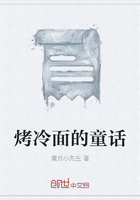The 21st of January, 1535, was fixed upon for the awful ceremonial. The superstitious fears and bigoted hatred of the whole nation had been roused.
Paris was thronged with the multitudes that from all the surrounding country crowded her streets. The day was to be ushered in by a vast and imposing procession. "The houses along the line of march were hung with mourning drapery, and altars rose at intervals." Before every door was a lighted torch in honor of the "holy sacrament." Before daybreak the procession formed at the palace of the king. "First came the banners and crosses of the several parishes; next appeared the citizens, walking two and two, and bearing torches." The four orders of friars followed, each in its own peculiar dress. Then came a vast collection of famous relics. Following these rode lordly ecclesiastics in their purple and scarlet robes and jeweled adornings, a gorgeous and glittering array.
"The host was carried by the bishop of Paris under a magnificent canopy, . .
. supported by four princes of the blood. . . . After the host walked the king. . . . Francis I on that day wore no crown, nor robe of state." With "head uncovered, his eyes cast on the ground, and in his hand a lighted taper," the king of France appeared "in the character of a penitent."--Ibid., b. 13, ch. 21. At every altar he bowed down in humiliation, nor for the vices that defiled his soul, nor the innocent blood that stained his hands, but for the deadly sin of his subjects who had dared to condemn the mass. Following him came the queen and the dignitaries of state, also walking two and two, each with a lighted torch.
As a part of the services of the day the monarch himself addressed the high officials of the kingdom in the great hall of the bishop's palace. With a sorrowful countenance he appeared before them and in words of moving eloquence bewailed "the crime, the blasphemy, the day of sorrow and disgrace," that had come upon the nation. And he called upon every loyal subject to aid in the extirpation of the pestilent heresy that threatened France with ruin. "As true, messieurs, as I am your king," he said, "if Iknew one of my own limbs spotted or infected with this detestable rottenness, I would give it you to cut off. . . . And further, if I saw one of my children defiled by it, I would not spare him. . . . I would deliver him up myself, and would sacrifice him to God." Tears choked his utterance, and the whole assembly wept, with one accord exclaiming: "We will live and die for the Catholic religion!"--D'Aubigne, History of the Reformation in Europe in the Time of Calvin, b. 4, ch. 12.
Terrible had become the darkness of the nation that had rejected the light of truth. The grace "that bringeth salvation" had appeared; but France, after beholding its power and holiness, after thousands had been drawn by its divine beauty, after cities and hamlets had been illuminated by its radiance, had turned away, choosing darkness rather than light. They had put from them the heavenly gift when it was offered them. They had called evil good, and good evil, till they had fallen victims to their willful self-deception. Now, though they might actually believe that they were doing God service in persecuting His people, yet their sincerity did not render them guiltless. The light that would have saved them from deception, from staining their souls with bloodguiltiness, they had willfully rejected.
A solemn oath to extirpate heresy was taken in the great cathedral where, nearly three centuries later, the Goddess of Reason was to be enthroned by a nation that had forgotten the living God. Again the procession formed, and the representatives of France set out to begin the work which they had sworn to do. "At short distances scaffolds had been erected, on which certain Protestant Christians were to be burned alive, and it was arranged that the fagots should be lighted at the moment the king approached, and that the procession should halt to witness the execution."--Wylie, b. 13, ch. 21. The details of the tortures endured by these witnesses for Christ are too harrowing for recital; but there was no wavering on the part of the victims.
On being urged to recant, one answered: "I only believe in what the prophets and the apostles formerly preached, and what all the company of saints believed. My faith has a confidence in God which will resist all the powers of hell."--D'Aubigne, History of the Reformation in Europe in the Time of Calvin, b. 4, ch. 12.
Again and again the procession halted at the places of torture. Upon reaching their starting point at the royal palace, the crowd dispersed, and the king and the prelates withdrew, well satisfied with the day's proceedings and congratulating themselves that the work now begun would be continued to the complete destruction of heresy.
The gospel of peace which France had rejected was to be only too surely rooted out, and terrible would be the results. On the 21st of January, 1793, two hundred and fifty-eight years from the very day that fully committed France to the persecution of the Reformers, another procession, with a far different purpose, passed through the streets of Paris. "Again the king was the chief figure; again there were tumult and shouting; again there was heard the cry for more victims; again there were black scaffolds; and again the scenes of the day were closed by horrid executions; Louis XVI, struggling hand to hand with his jailers and executioners, was dragged forward to the block, and there held down by main force till the ax had fallen, and his dissevered head rolled on the scaffold."--Wylie, b. 13, ch.
21. Nor was the king the only victim; near the same spot two thousand and eight hundred human beings perished by the guillotine during the bloody days of the Reign of Terror.















